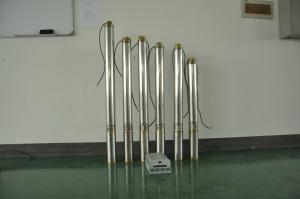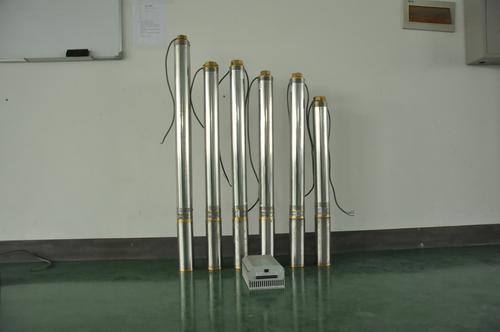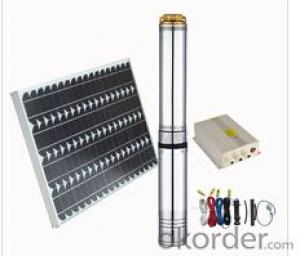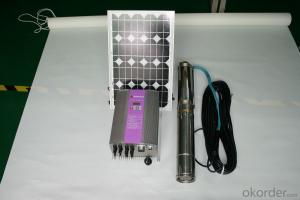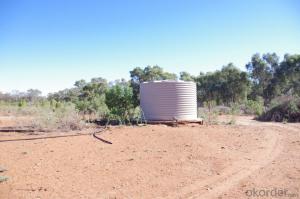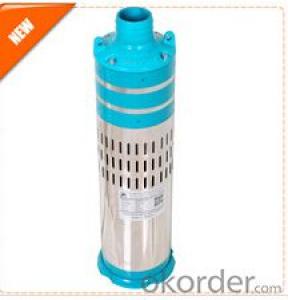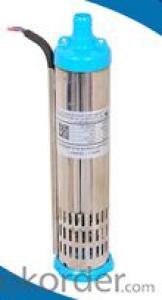2hp Solar Water Pump for Drinking Water
- Loading Port:
- Shanghai
- Payment Terms:
- TT OR LC
- Min Order Qty:
- -
- Supply Capability:
- 300 set/month
OKorder Service Pledge
Quality Product, Order Online Tracking, Timely Delivery
OKorder Financial Service
Credit Rating, Credit Services, Credit Purchasing
You Might Also Like
how is the rotor made:
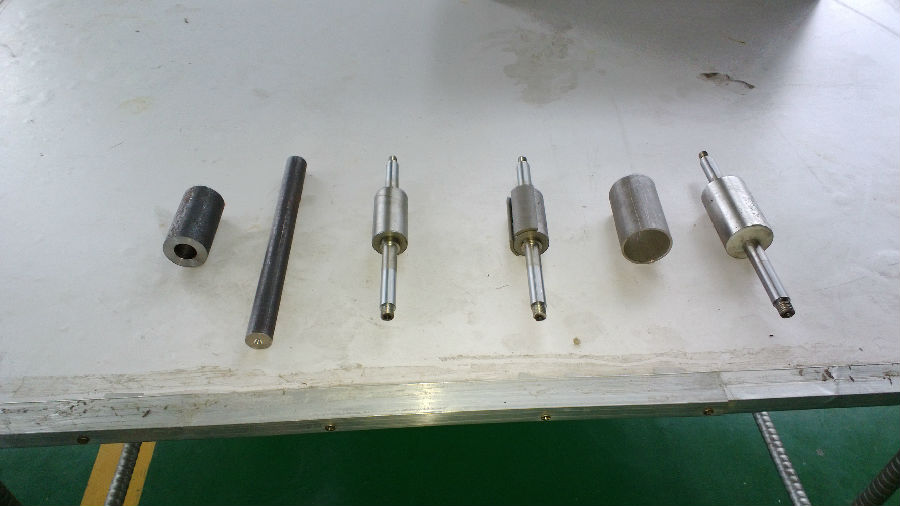
how is the motor made:
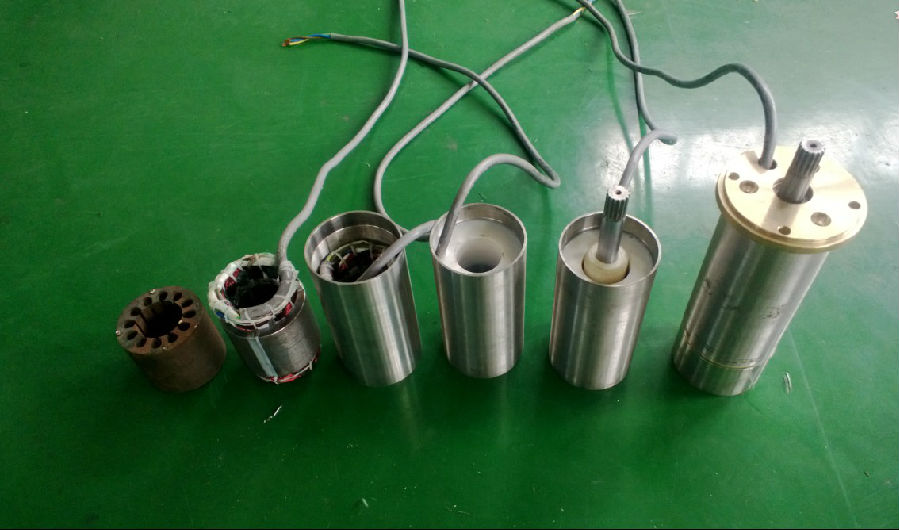
the pump :
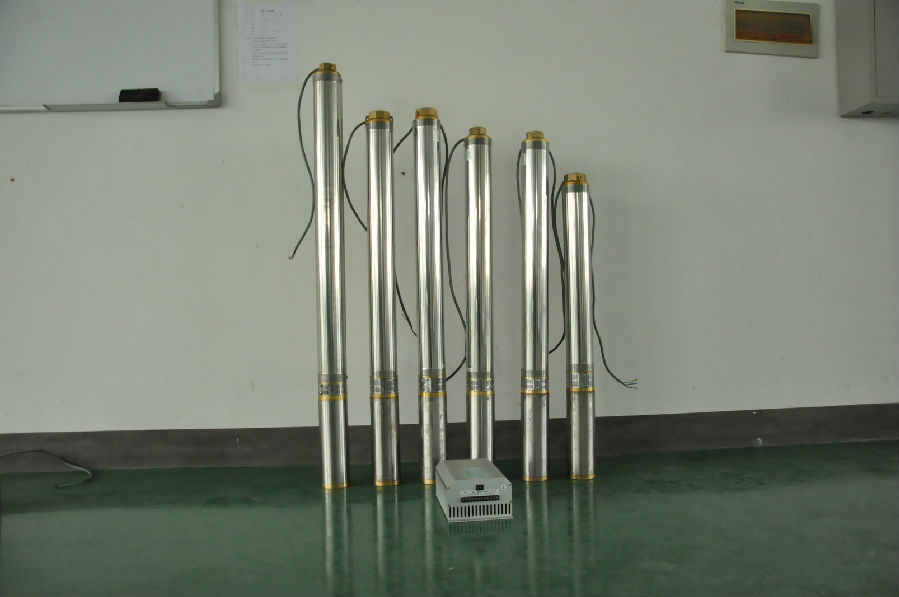
controller terminal connection:
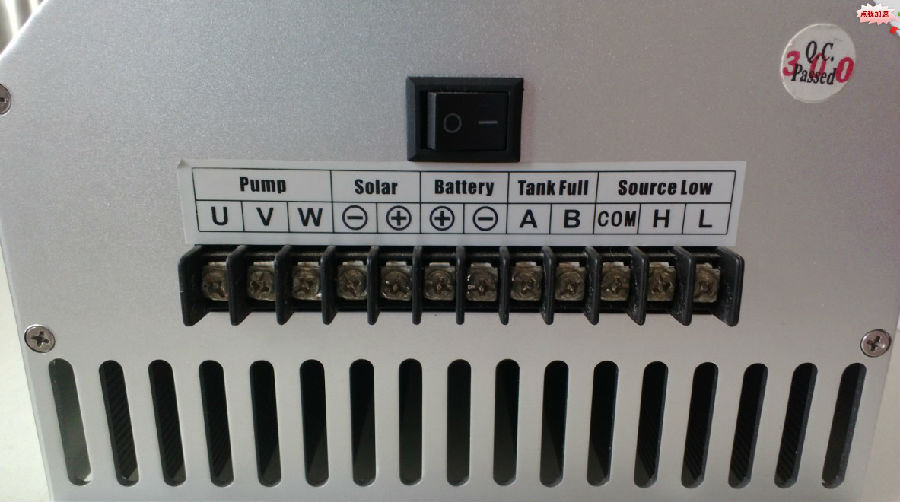
The permanent magnet:
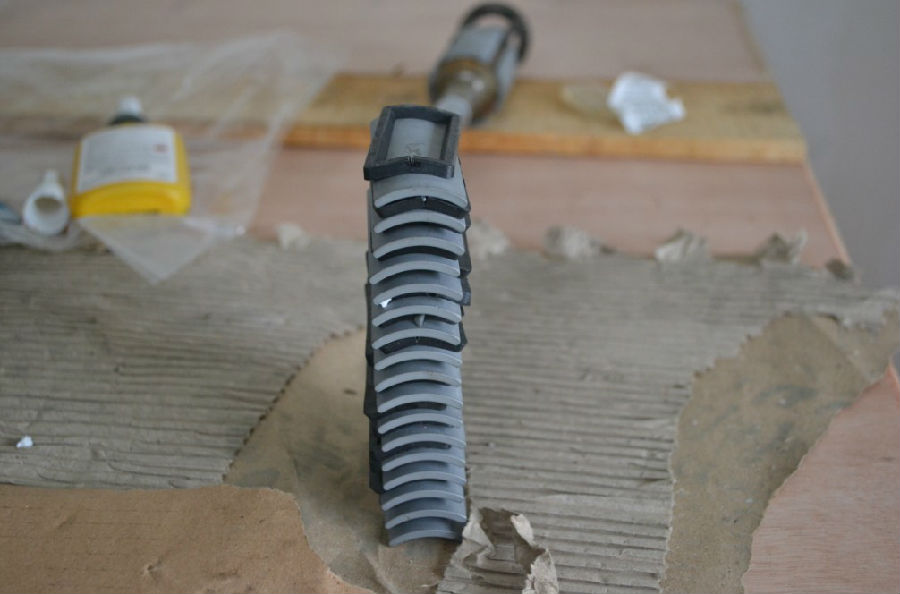
the impeller:
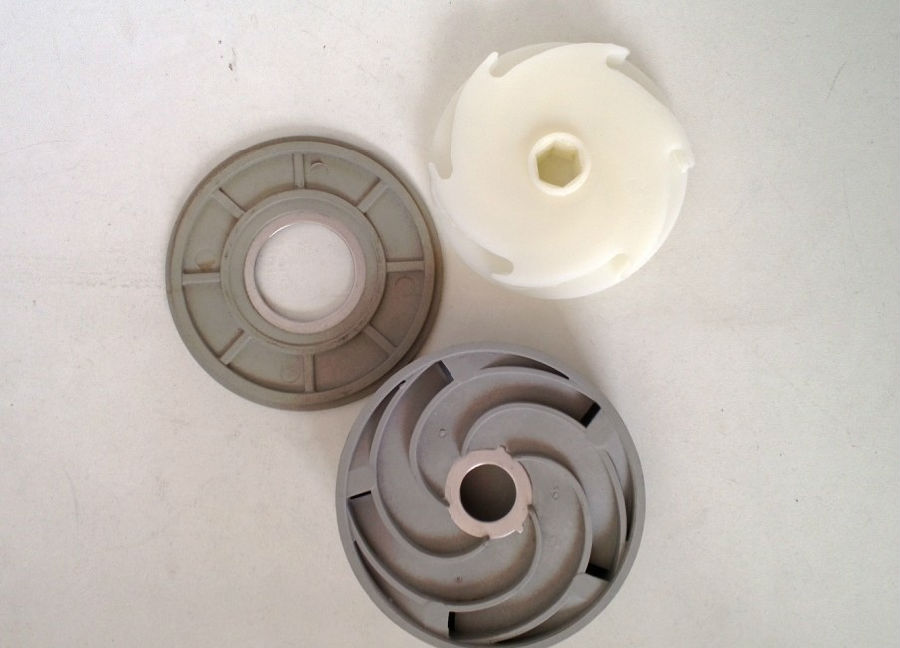
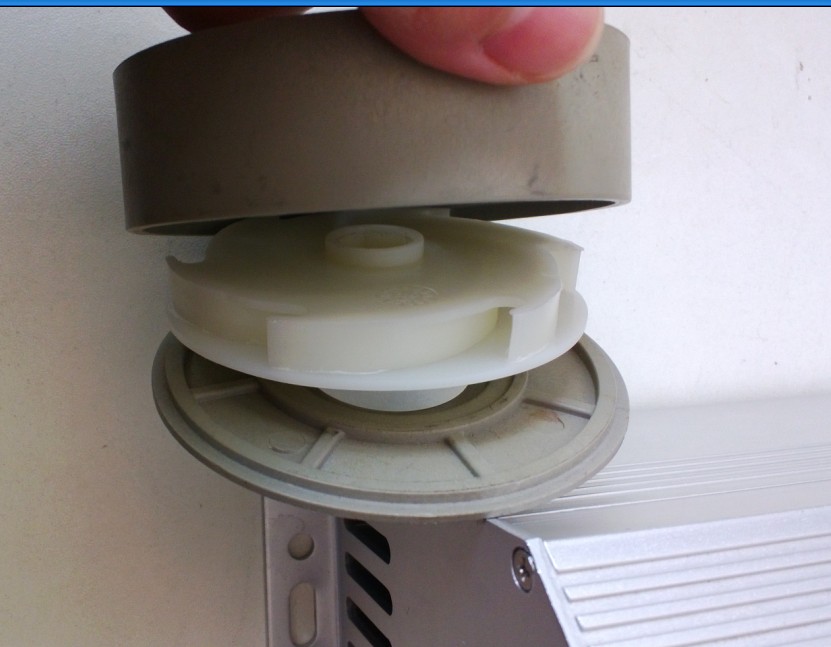
controller box:
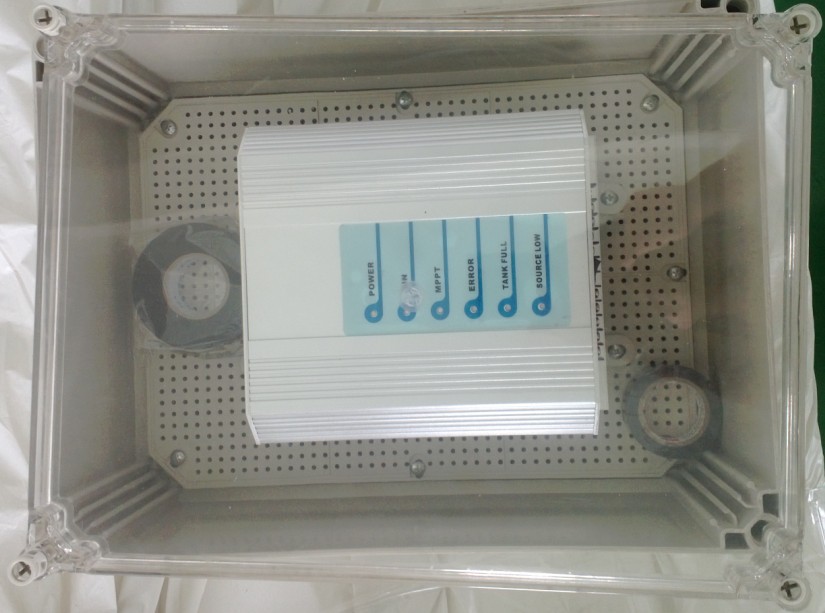
the senors:
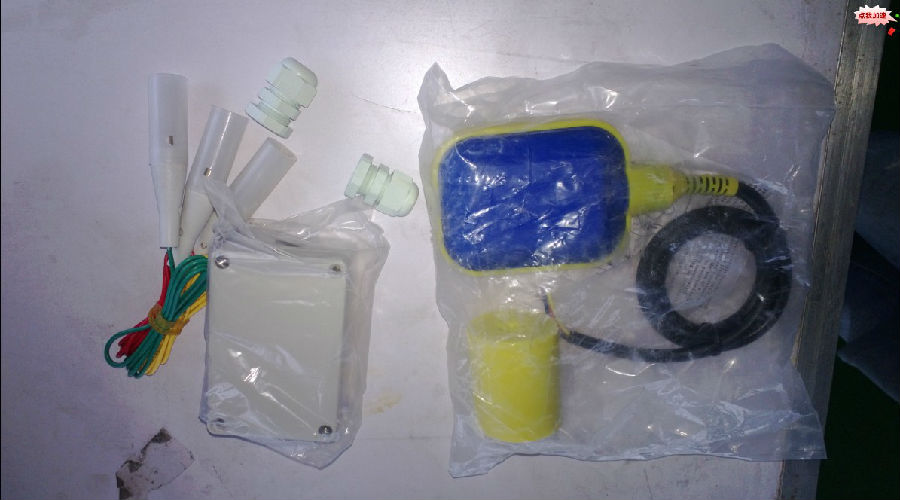
the test:
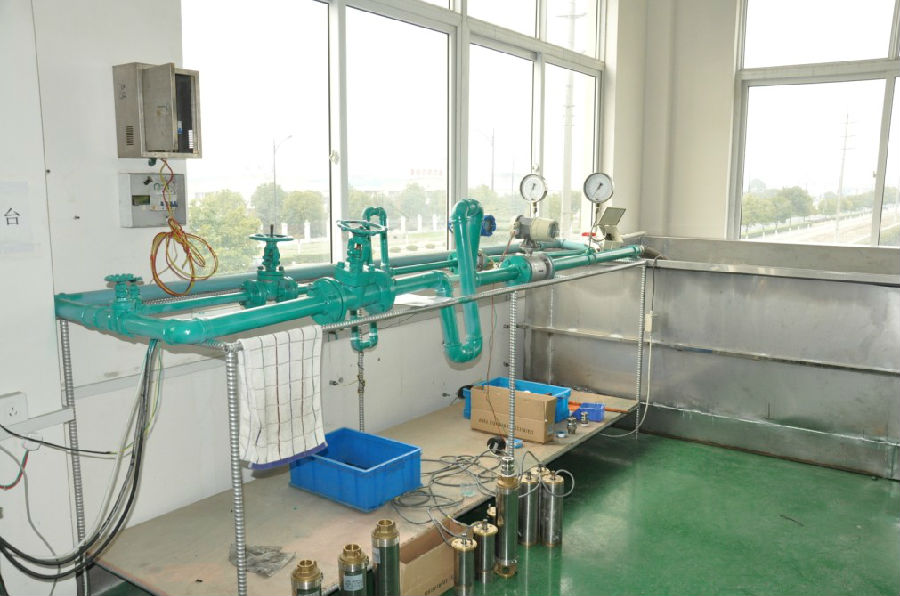
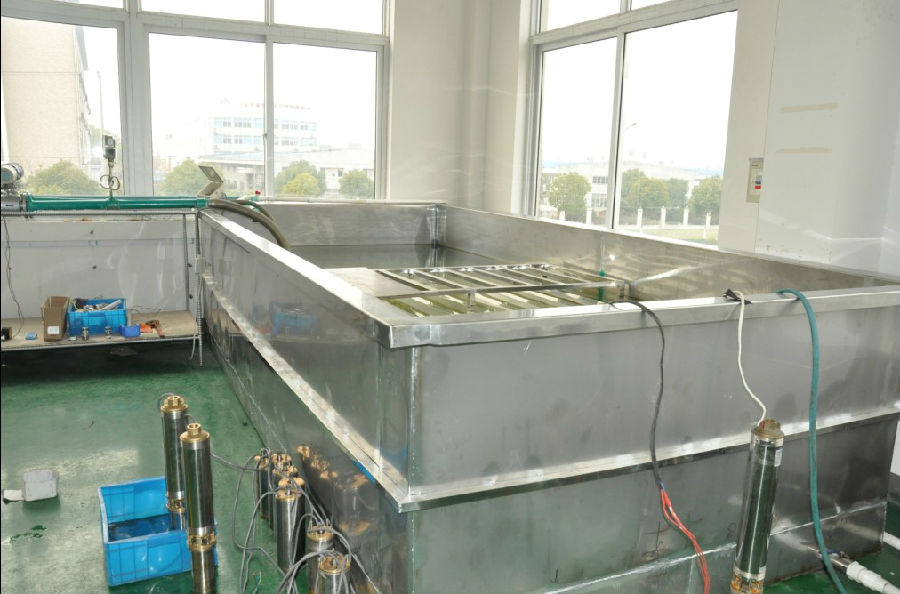
the application:
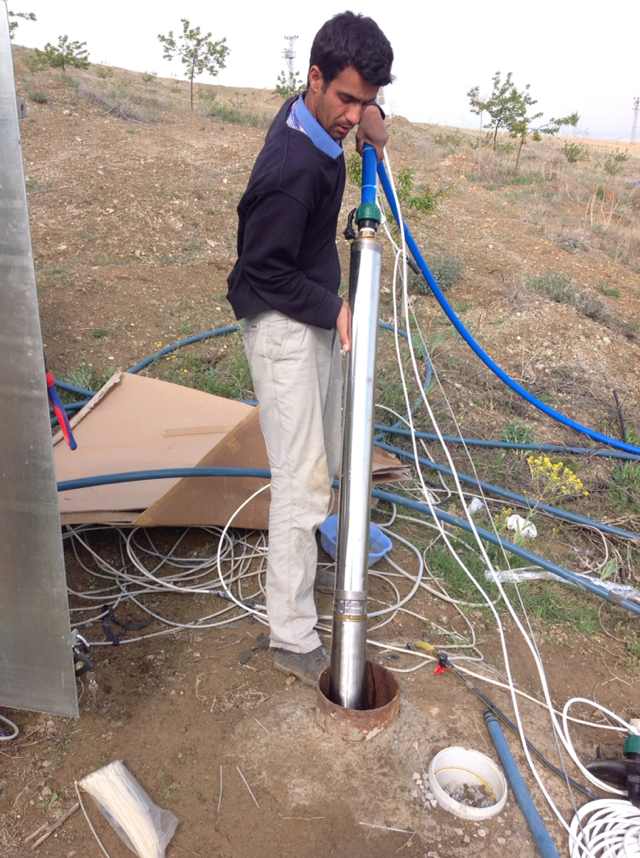
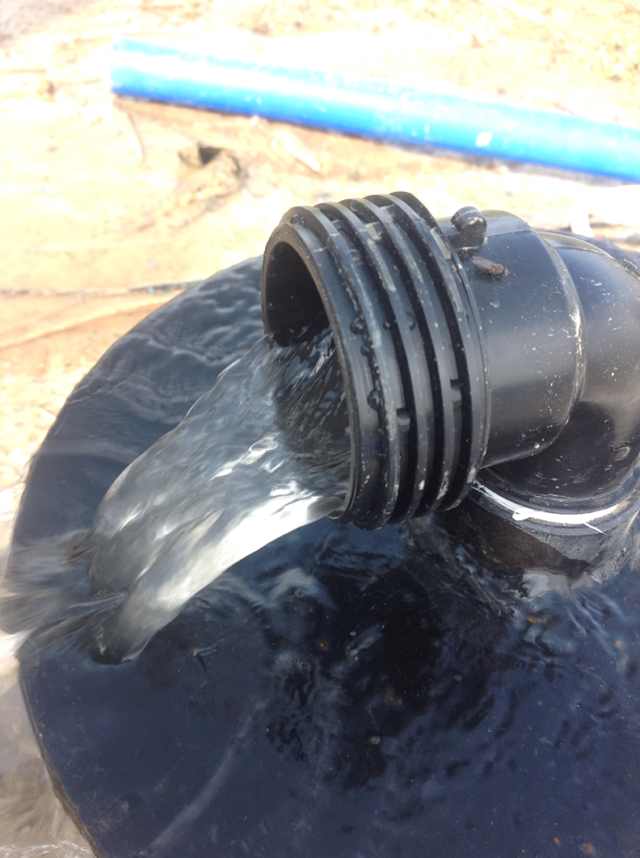
the package:
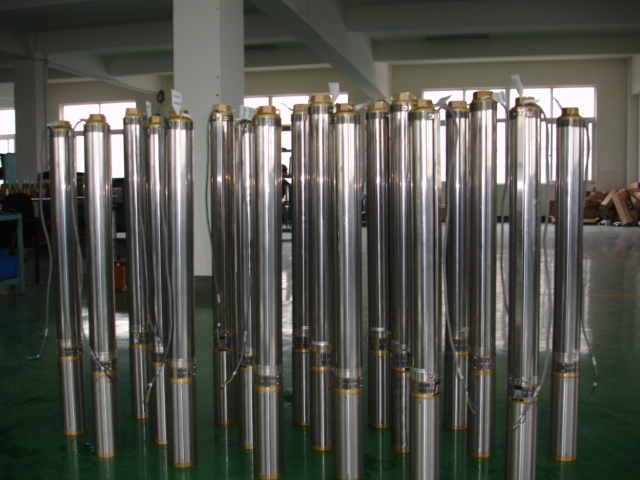
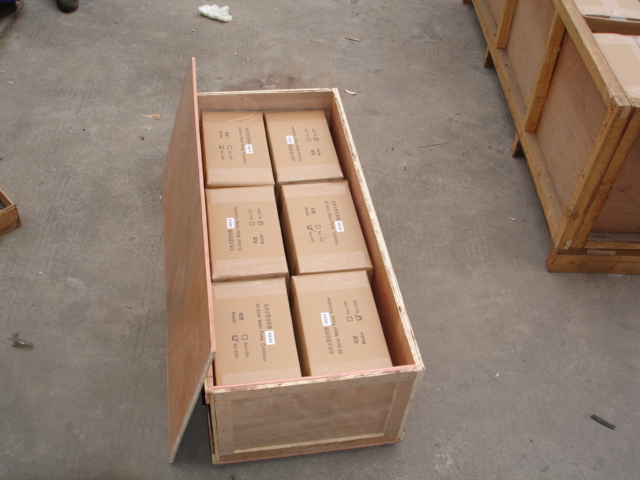
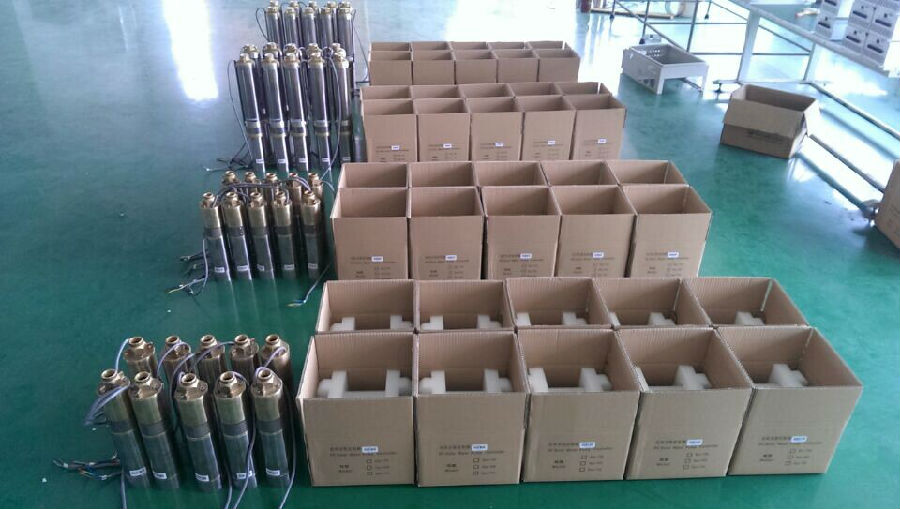
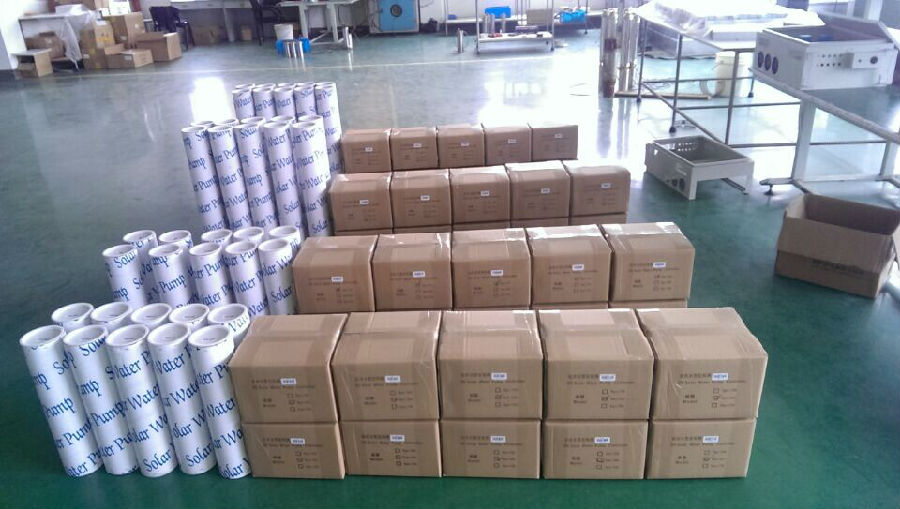
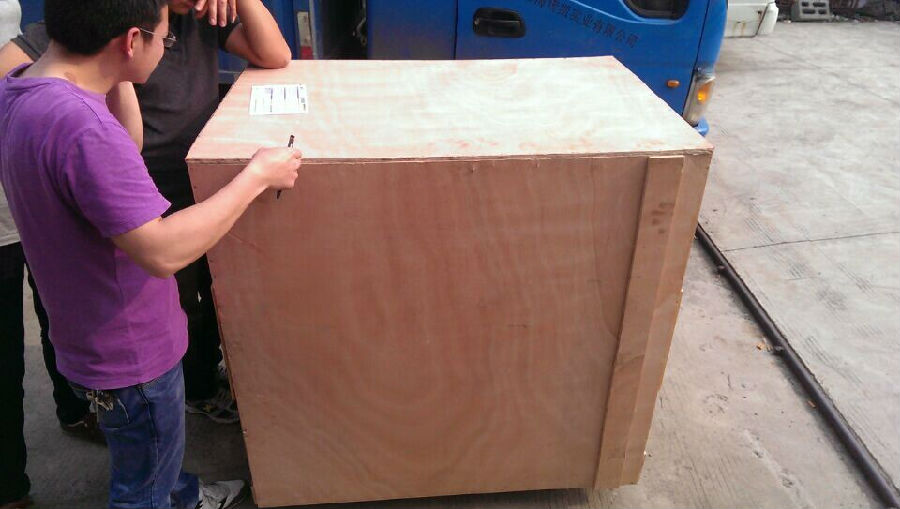
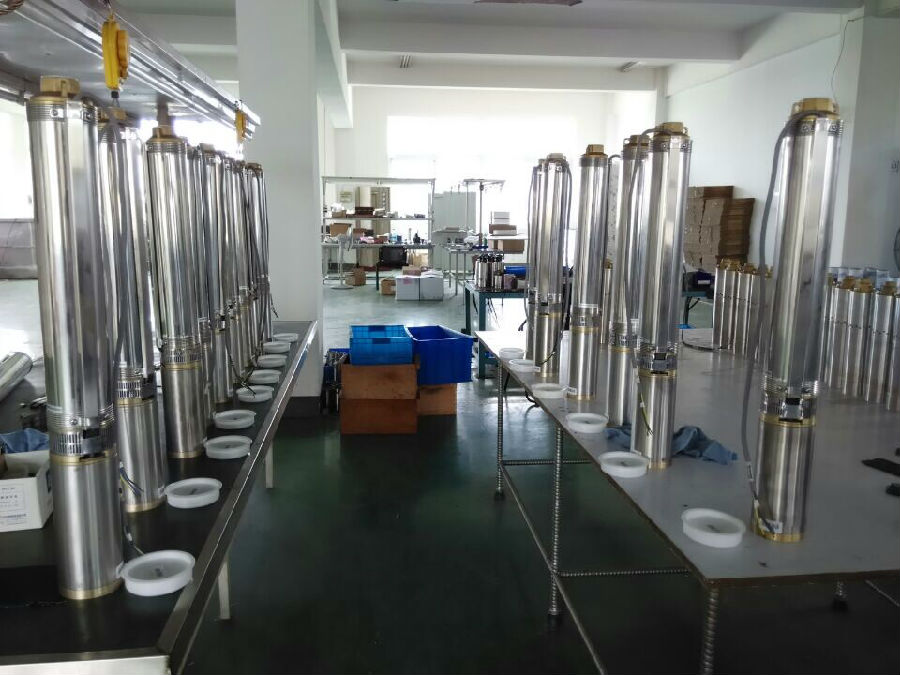
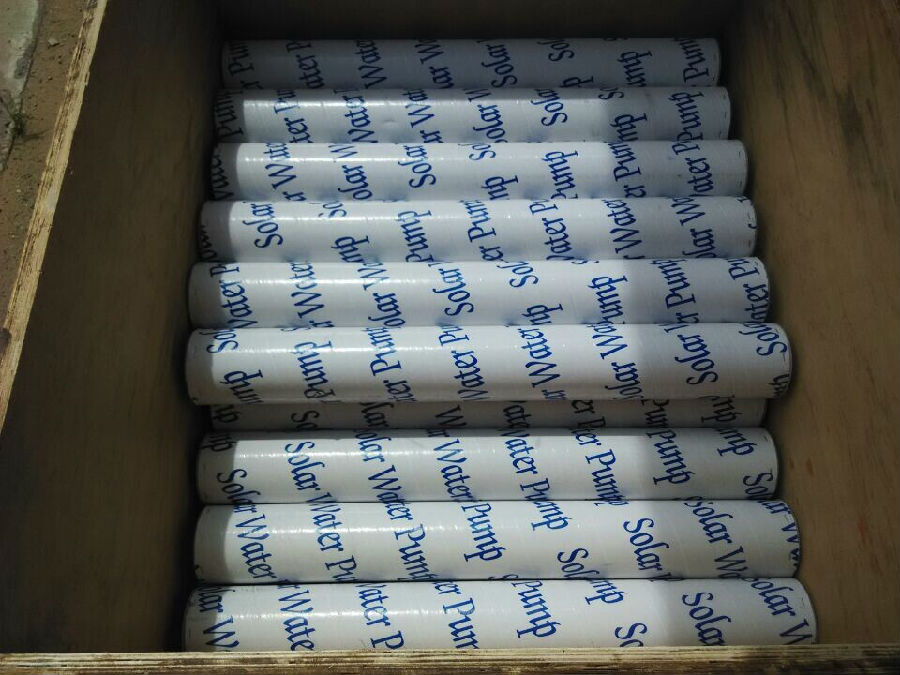
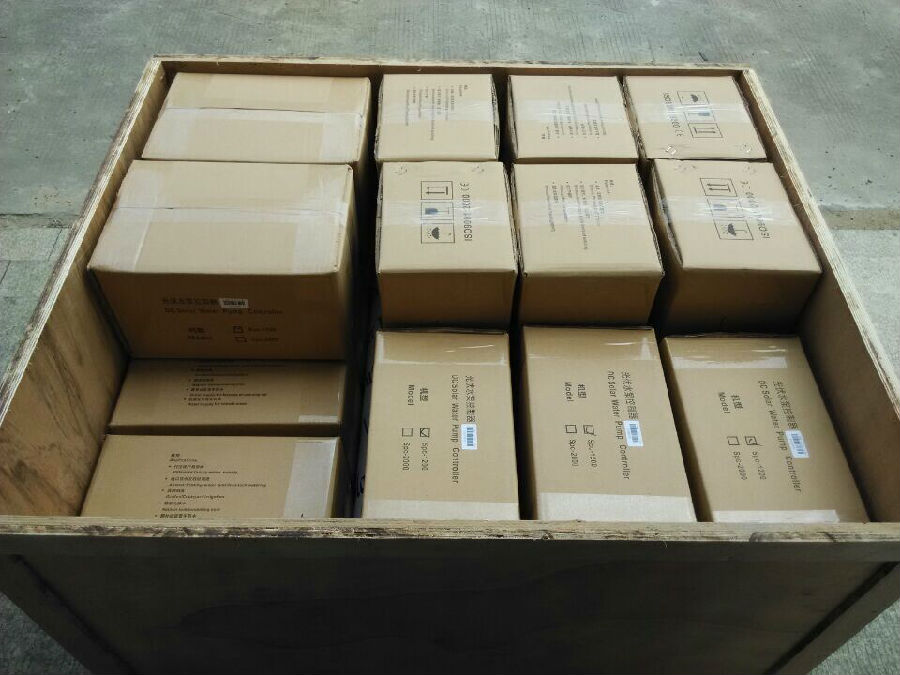
- Q: How long does a solar pump typically last?
- A solar pump typically lasts for about 20 to 25 years, depending on the quality of the equipment, maintenance, and environmental conditions.
- Q: Can a solar pump be used in areas with high salinity or mineral content in water?
- Absolutely! Solar pumps are perfectly suitable for use in areas where the water has high salinity or mineral content. These pumps are specifically crafted to work efficiently in a wide range of water sources, even those with elevated levels of salinity or minerals. Nevertheless, it is crucial to take into account the type of solar pump and its compatibility with the specific water conditions. Certain solar pumps might necessitate extra filtration systems or special materials to safeguard against any potential damage caused by high salinity or mineral content. To ensure the most suitable pump and to ascertain any necessary precautions for using it in such areas, it is highly recommended to seek guidance from a solar pump manufacturer or a water expert.
- Q: Can a solar pump be used for water circulation in a swimming pool?
- Yes, a solar pump can be used for water circulation in a swimming pool. Solar pumps are designed to use the energy from the sun to power the pump and circulate water. They are a cost-effective and environmentally friendly option for pool owners as they do not require electricity from the grid to operate. Solar pumps can effectively circulate water in a swimming pool, ensuring proper filtration and distribution of chemicals throughout the pool. This helps to maintain water clarity and cleanliness while reducing energy costs. Additionally, solar pumps are easy to install and require minimal maintenance, making them a convenient choice for pool owners.
- Q: Can solar pumps be used to create a water feature in a garden?
- Yes, solar pumps can be used to create a water feature in a garden. Solar pumps are an environmentally friendly option that use solar energy to power the pump, eliminating the need for electricity or batteries. They can be used to create fountains, waterfalls, or other water features, adding an attractive and soothing element to any garden while minimizing energy consumption.
- Q: How does the elevation of the installation site affect the performance of a solar pump?
- The elevation of the installation site can significantly affect the performance of a solar pump. As the elevation increases, the atmospheric pressure decreases, resulting in a decrease in the boiling point of water. This can cause the pump to work less efficiently, as the lower boiling point can lead to the formation of air bubbles in the system, reducing its pumping capacity. Additionally, higher elevations may also lead to a decrease in sunlight intensity, reducing the solar pump's overall power output. Therefore, careful consideration of the installation site's elevation is essential to ensure optimal performance of a solar pump.
- Q: How does the performance of a solar pump vary with different solar panel efficiencies?
- The performance of a solar pump can vary significantly with different solar panel efficiencies. Solar pumps rely on solar panels to convert sunlight into electrical energy, which powers the pump. The efficiency of a solar panel refers to its ability to convert sunlight into usable electricity. When using solar panels with higher efficiencies, more sunlight can be converted into electricity, resulting in increased power output. This means that a solar pump connected to highly efficient solar panels will have a higher energy output, resulting in a higher flow rate and increased water pumping capacity. On the other hand, solar panels with lower efficiencies are less effective at converting sunlight into electricity. This translates to lower power output, which can negatively affect the performance of the solar pump. A pump connected to less efficient solar panels may have lower flow rates and reduced pumping capacity, especially during periods of lower sunlight intensity or shorter daylight hours. Additionally, the performance of a solar pump is influenced by other factors such as the pump's design, the type of motor it uses, and the overall system configuration. However, the efficiency of the solar panels remains a crucial factor in determining the overall performance of the solar pump. Therefore, it is important to consider the efficiency of the solar panels when selecting a solar pump system. Higher efficiency solar panels will generally result in better performance and more reliable water pumping capabilities, especially in locations with limited sunlight resources.
- Q: What is the expected efficiency of a solar pump system in converting solar energy to water pressure?
- The expected efficiency of a solar pump system in converting solar energy to water pressure can vary depending on various factors such as the type and quality of the solar panels, the design and efficiency of the pump system, and the environmental conditions where the system is installed. Generally, a well-designed and properly functioning solar pump system can achieve an efficiency of around 20% to 40% in converting solar energy to water pressure. This means that for every 100 units of solar energy received, the system can convert 20 to 40 units into water pressure. The efficiency of the solar panels plays a crucial role in determining the overall efficiency of the system. High-quality solar panels with a high conversion efficiency can maximize the utilization of solar energy and enhance the overall efficiency of the pump system. Additionally, the design and efficiency of the pump system itself are important factors. A well-designed system, including the selection of the appropriate pump type and size, can optimize the energy conversion process and improve efficiency. The use of energy-efficient motors and pumps can also contribute to higher overall efficiency. Environmental conditions also impact the efficiency of a solar pump system. Factors such as sunlight intensity, temperature, shading, and dust accumulation on the solar panels can affect the system's performance. Therefore, it is important to consider these factors during the design and installation of the system to maximize efficiency. Overall, while the expected efficiency of a solar pump system can vary, with the right design, equipment, and environmental conditions, it is possible to achieve a reasonably high efficiency in converting solar energy to water pressure.
- Q: What is the expected lifespan of the controller used in a solar pump system?
- The expected lifespan of a controller used in a solar pump system can vary depending on various factors such as the quality of the controller, usage patterns, maintenance, and environmental conditions. However, a well-maintained and high-quality controller can typically last anywhere from 5 to 15 years.
- Q: Can a solar pump be used in areas with limited access to water resources?
- Yes, a solar pump can be used in areas with limited access to water resources. Solar pumps are designed to operate using solar energy, making them suitable for remote areas where electricity is not readily available. They can be used to extract water from various sources such as wells, rivers, and lakes, providing a reliable and sustainable solution for communities with limited access to water resources.
- Q: Can solar pumps be used for water supply in schools or public facilities?
- Yes, solar pumps can be used for water supply in schools or public facilities. Solar pumps are an efficient and sustainable solution for accessing clean water, especially in areas with limited or unreliable electricity supply. They can provide a reliable and cost-effective water supply for various applications, including drinking water, sanitation, and irrigation, making them suitable for schools and public facilities. Additionally, solar pumps require minimal maintenance and have a long lifespan, making them a viable option for sustainable water supply in these settings.
Send your message to us
2hp Solar Water Pump for Drinking Water
- Loading Port:
- Shanghai
- Payment Terms:
- TT OR LC
- Min Order Qty:
- -
- Supply Capability:
- 300 set/month
OKorder Service Pledge
Quality Product, Order Online Tracking, Timely Delivery
OKorder Financial Service
Credit Rating, Credit Services, Credit Purchasing
Similar products
Hot products
Hot Searches
Related keywords
